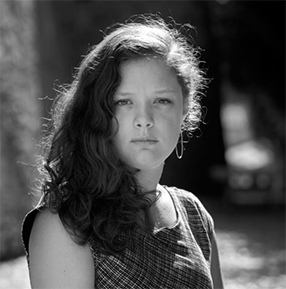Virginia, Autumn
October, I’m dragging the dog away from perfect birds
lifeless on the pavement. By the water, boys in dress blues
with bayonets, the blistered hulls of boxships. Everything
is sunshine. Everything is dead, or dying, and this isn’t
a new thought. I grew up here, but farther from the ocean.
Each April, they took us to the battlefield, marched us
in schoolhouse lines up courthouse steps: here
is where the war ended. Never mind that it was fall
before the final battleship lowered its flag; never mind
that we still haven’t fired the last gun. What business
do I have wanting a baby here: in this body
where I can’t keep my balance, this country
where we can’t keep anything alive that needs us,
or dares not to, not even the switchgrass
pale and starved for groundwater? And still,
I do want. I search the news for mention of the birds,
whatever poison or disease I’m sure is claiming them
in such great numbers: meadowlarks, house wrens,
chickadees, starlings. Once even a gray gull, pulled
open at the chest before we found him, hollowed
of his organs. It takes a long time—too long—
for me to understand the sun in this season
is blinding, and the birds are flying into windows
all around me, fourteen stories up. Flying into glass
and falling. What we love is rarely blameless.
Is it a failure that I wouldn’t trade this brightness?
I imagine pointing upward for my daughter:
Look, there, how it catches in the changing trees.
Copyright © 2023 by Molly McCully Brown. Originally published in Poem-a-Day on April 5, 2023, by the Academy of American Poets.
“This poem, which I drafted after a long period of silence, arose from a real circumstance in my life: a period of weeks when, for no clear reason, the city blocks immediately around my apartment were regularly strewn with the bodies of birds with no obvious injury. The experience—at once sad, unsettling, and striking—made me think about all the ways in which, in this country, and especially in Virginia in particular, beauty and joy persist alongside terror, vulnerability, and violence, and about what it means to make a life at their intersections.”
—Molly McCully Brown

